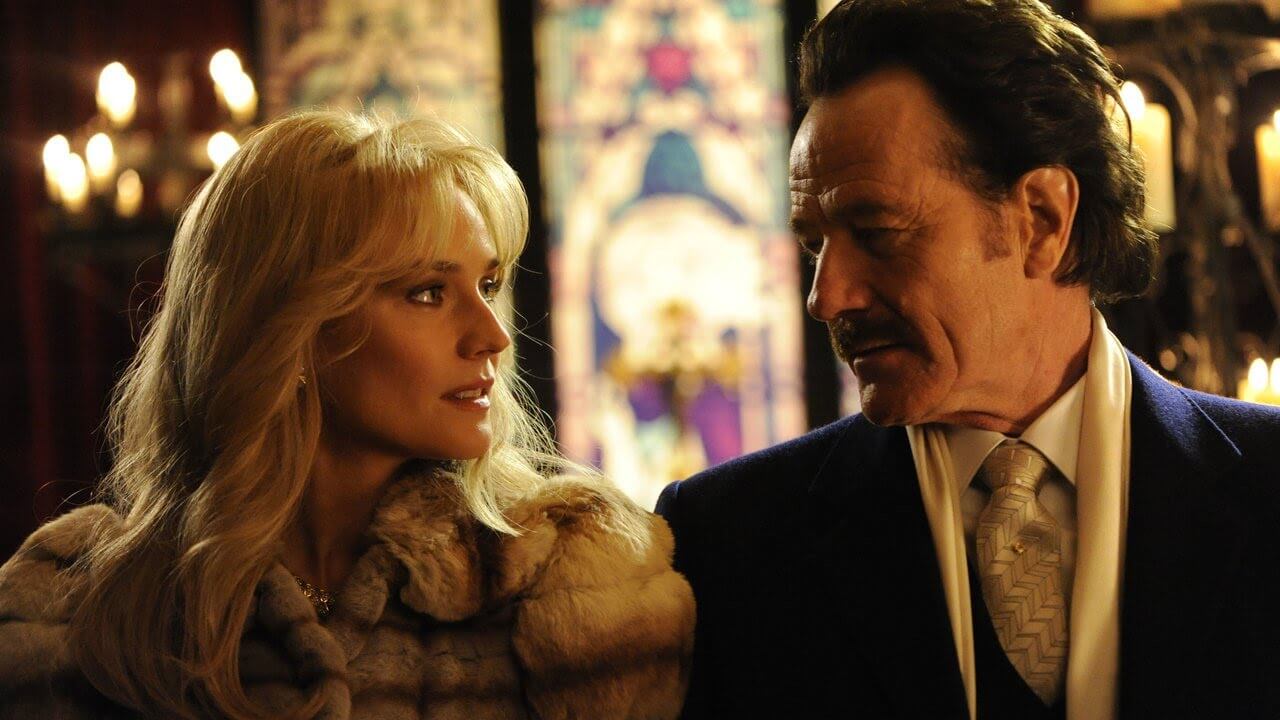The Infiltrator [2016] tells the true story of an undercover U.S. Customs agent who penetrated the upper echelons of Pablo Escobar’s cocaine smuggling business during the 1980s. Bryan Cranston, John Leguizamo, Diane Kruger, Amy Ryan, and Benjamin Bratt star in this 1980s period piece.
Structurally muddled. While it contains individually strong scenes, The Infiltrator fails to gather any real plot momentum by virtue of its divided attentions. Robert Mazur, played by Bryan Cranston, is an undercover Customs agent working in Miami who suffers an injury during a sting operation in the first scene and is given the opportunity to retire. But, like every law enforcement officer in film history, he feels compelled to go back into service and chase the bigger targets, in this case, the money men working under Pablo Escobar. The tension with his wife, who clearly dislikes his dangerous occupation, is ratcheted up when an attractive young agent played by Diane Kruger is cast as Mazur’s undercover fiancé. However, this storyline is quickly subsumed into the larger action of the international sting operation, and Mazur’s wife, played subtly by Juliet Aubrey, rarely shows up in the film’s second half.
Scatterbrained relationships. The main action of the film involves Mazur and his faux fiancé getting in close with a couple of Pablo Escobar’s top men, including the flamboyant Javier Ospina and the staid Roberto Alcaino. The film sets itself up as the story of multinational money laundering and then changes gears and settles into a series of meetings during which little other than the abstract concept of trust is discussed. The best example of how the film portrays human relationships is captured by Mazur’s arc with his partner Emir, played quite well by John Leguizamo. The two can’t stand one another at the beginning of the film, have a couple arguments about how they need one another to do their job, and then seamlessly merge into a perfect team.
Lost in the shuffle. For that and a few other reasons, The Infiltrator feels like a movie that got lost on the cutting room floor. Certain scenes simply don’t add up, as if they are remnants from a longer version that included twice the story lines. The film was adapted from a book by the real Robert Mazur, and it’s also possible that the screenwriters cherry-picked the most exciting scenes from an otherwise meticulous accounting of this elaborate sting operation. In the end, though, the film tries to do two things but fails at both: it sets out to tell the gripping story of an undercover infiltration of the high stakes world of international money laundering and ends up being a limp drama punctuated by shootings. There’s a compelling movie somewhere in there and quite a few good performances, but the version that was released in theaters is disappointing given the level of talent on screen.
Though occasionally interesting, The Infiltrator continues Bryan Cranston’s stumbling transition from television to film, by failing to tell a memorable story or create an interesting world.

